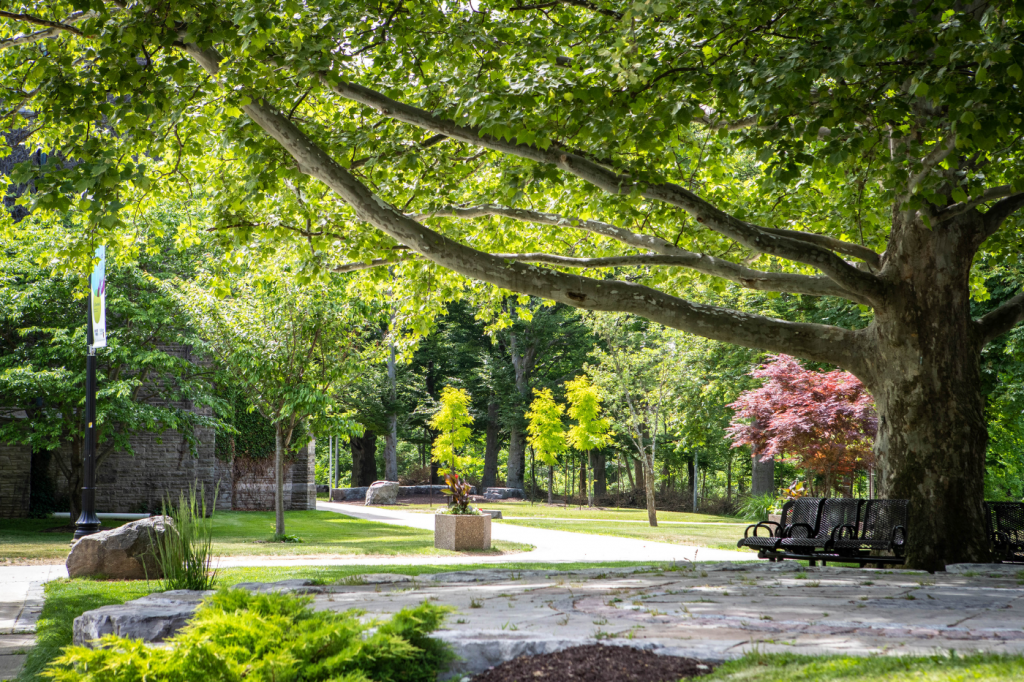Living Laboratory for Environmental Sustainability
Alvin Baldovino, Assistant Director, Engineering Operations at McMaster University on the Ivor Wynne Centre roof top with solar thermal collectors on campus. McMaster’s 60 solar thermal collectors on campus provide pre-heating to a large swimming pool area.

Across all of the groups involved in our engagement process to develop our strategic plan, environmental sustainability was mentioned as a strength or desired future state for our campus. Facility Services plays a unique role in managing energy and water use at McMaster. Achieving this strategic driver will have a positive ripple effect on the health of our community and our planet.
University Sustainability
Growing from the extensive experience our team has in this area, facilitate the development of McMaster’s first campus-wide sustainability strategy.
Developing a sustainability plan via cross-campus collaboration is an institutional priority. The Office of Sustainability has engaged students, faculty members and staff in shaping McMaster’s first university-wide Sustainability Strategy via interviews and a mass survey. Prior to this new, collaborative approach, Facility Services created a standalone sustainability report. Every year moving forward, the Office of Sustainability will report on the progress of this strategy in a report featuring initiatives from across the university.
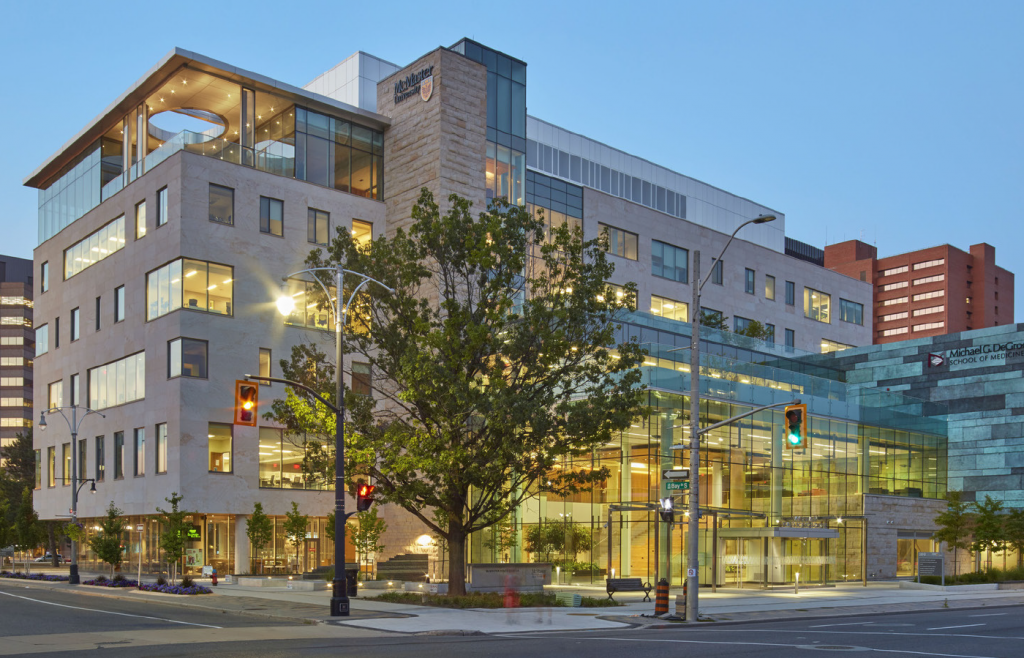
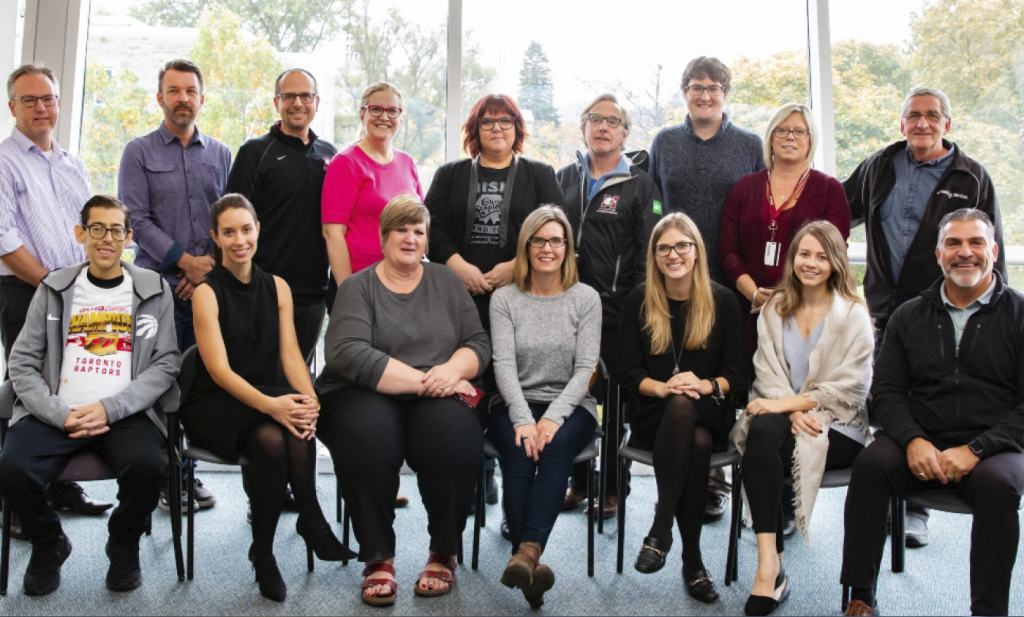
Human Health and Well-being
We will support in the development and implementation of solutions for food insecurity. Facility Services will increase use of greenspace on campus and develop smart buildings.
Facility Services will develop a sustainability road map for Facility Services focused on human health and well-being. We will conduct, review and evaluate coordinated pilot projects to move towards an integrated smart campus.
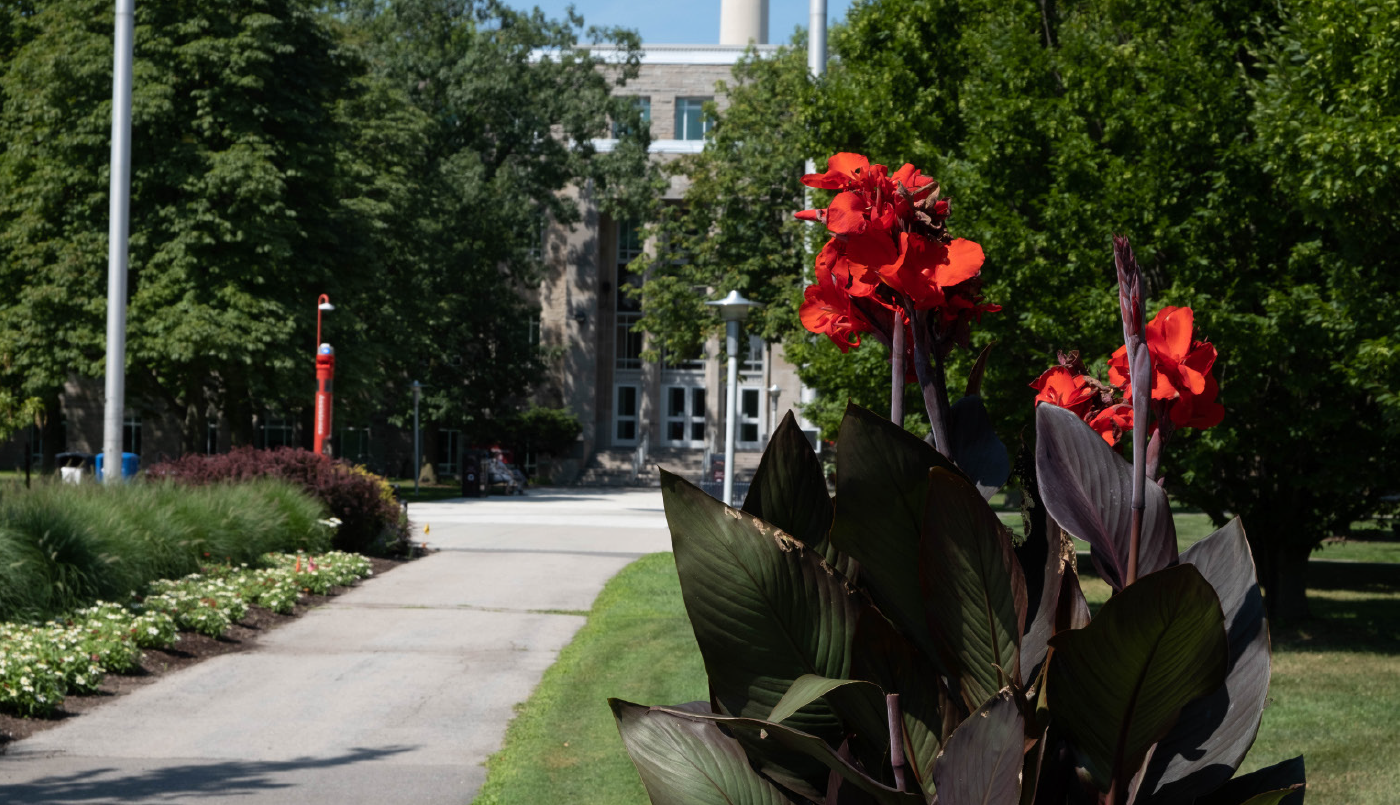
Net Zero
We will achieve a zero-carbon footprint on campus. We will design and build new buildings that are energy efficient, support alternative forms of transportation and electrify our team’s fleet of vehicles.
McMaster introduced a Net Zero Carbon Roadmap in 2020 as a way to reduce our campus’ carbon footprint. Facility Services is committed to implement this plan, with the option for an accelerated timeline.
Photo Caption: McMaster University campus in the summer.
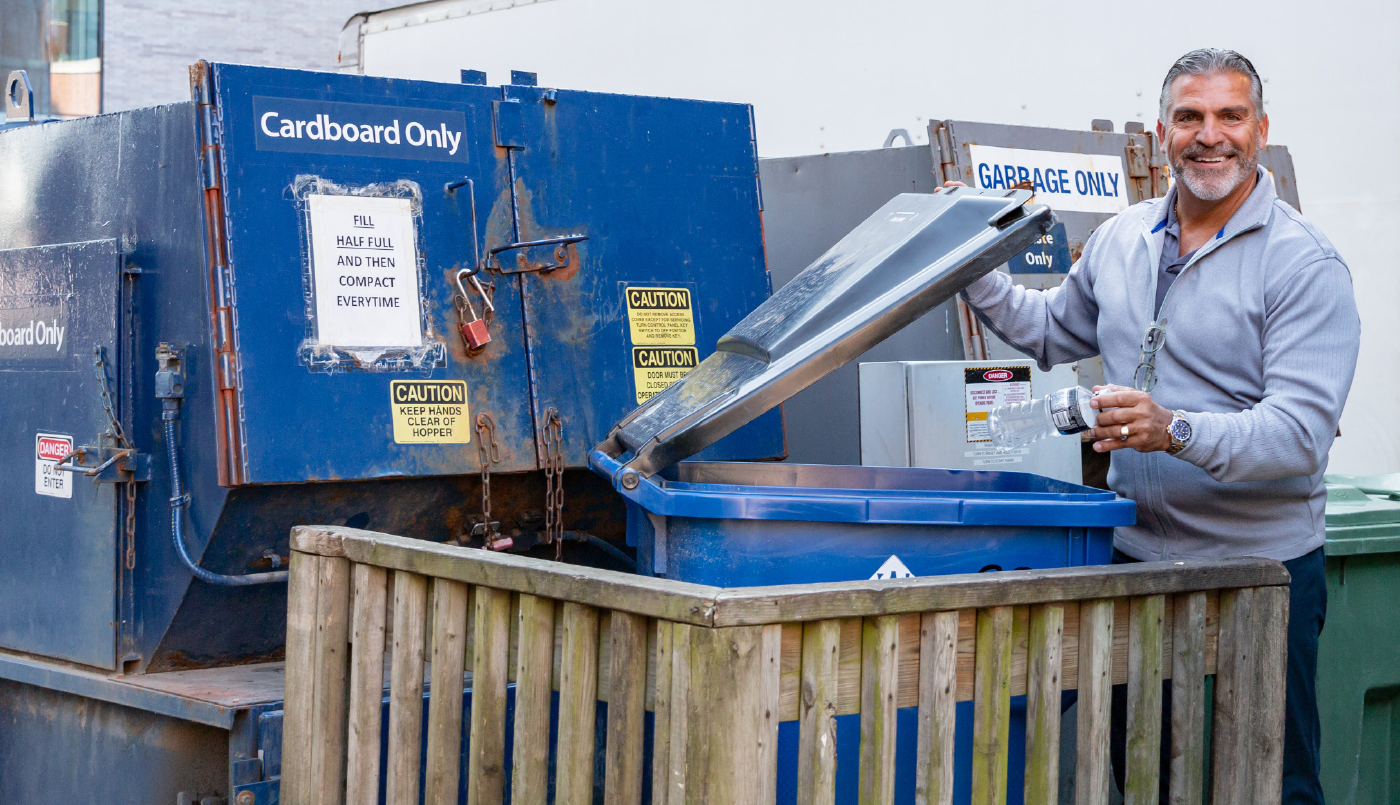
Waste
We will promote and educate the McMaster community about reduce, reuse, recycle, recover initiatives.
Facility Services is committed to developing a road map focused on campus waste reduction, reuse, recycle and recovery initiatives.
Photo Caption: Carlos Figueira manages campus waste for Facilities Services. Similar to many residential recycling and composting programs, McMaster’s waste continues to be divided into several different streams. Photo by Sarah Janes
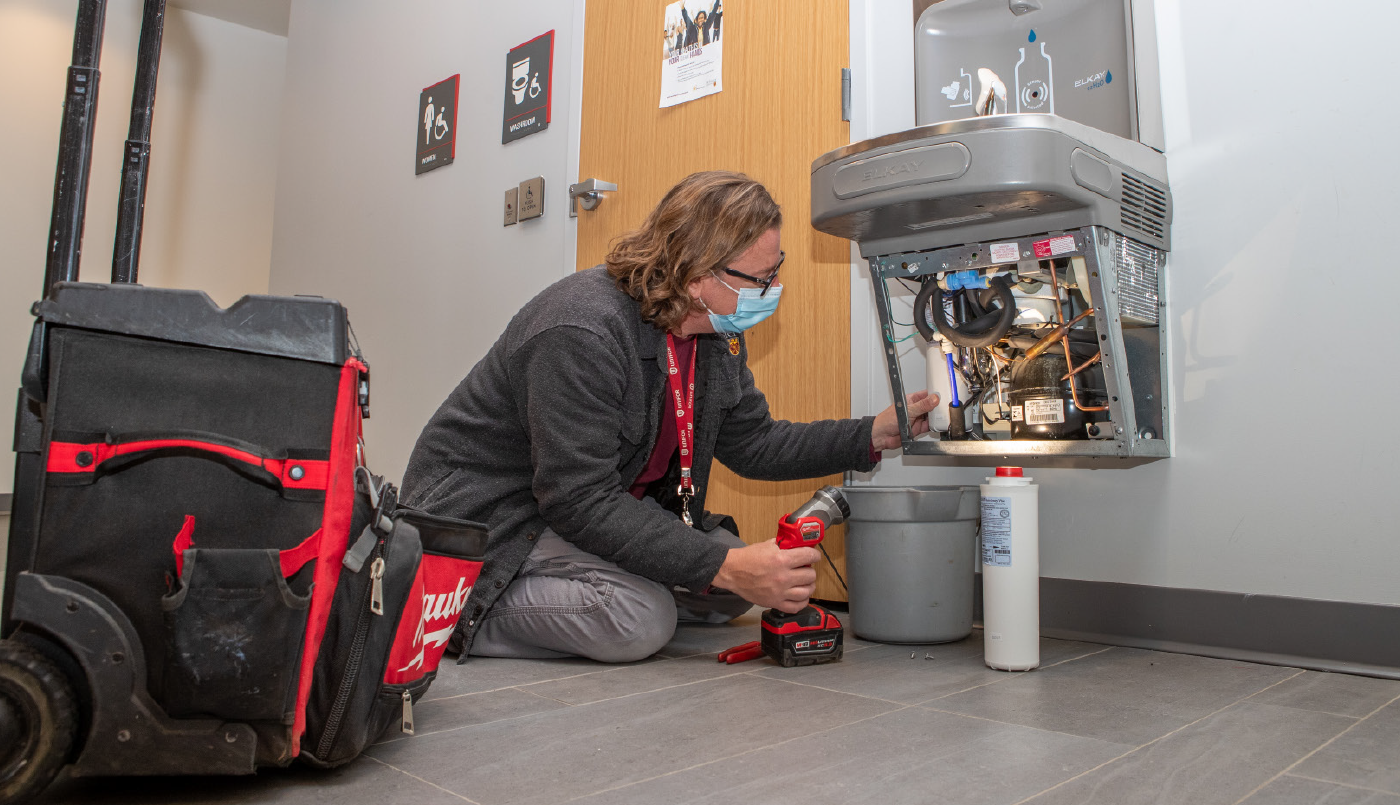
Quality and Quantity of Water
We will effectively manage the quality and quantity of storm water and reduce potable water use on campus.
Facility Services is committed to developing a storm water management plan and developing a plan for the repair and replacement of the water distribution lines on campus, in collaboration with the City of Hamilton.
Photo Caption: McMaster’s campus has over 200 water stations on campus diverting over 20 million plastic bottles from landfill. Facility Services team member Denis Boyter, plumber, helps ensure the stations operate with ease.
A Living Laboratory for Sustainability
Sustainability, in all its forms, matters to the McMaster community.
The focus on sustainability runs through every part of the university, from innovative teaching and research, to the campus environment and operations. Creating a living laboratory for sustainability is an institutional priority and Facility Services teams have an important role to play in achieving it.
In 2021, a snapshot of collective measures to advance environmental sustainability at McMaster was shared as the university’s inaugural university-wide Sustainability Report. Facility Services efforts to protect natural resources, reduce our environmental footprint and collaborate with students on sustainability initiatives were highlighted throughout the report.
Facility Services teams are saving energy, planting trees and native plants, building bee homes, electrifying vehicles, maintaining water bottle refilling stations, designing and constructing with sustainable principles, promoting e-waste reuse, and reducing waste, water consumption and carbon emissions. However, we know that in the years ahead, there is a lot of work to do to continue to promote sustainability at McMaster.
